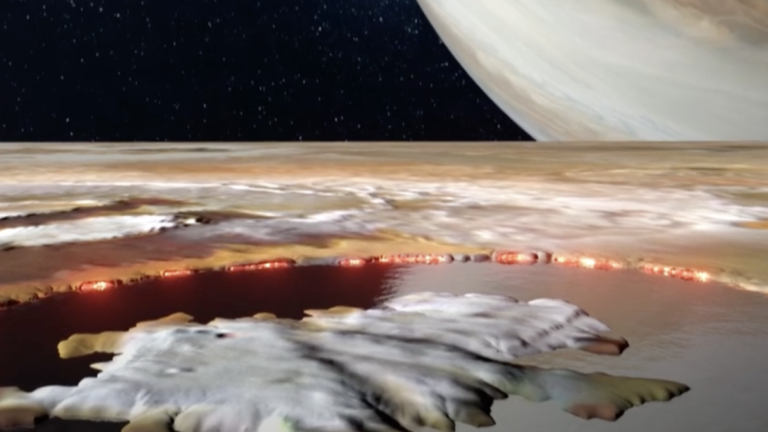NASA’s Juno spacecraft recently received a mass flyby powerful volcano in our solar system, on the most volcanic world known.
The space agency captured detailed views of the more than 200 kilometer wide volcano, which created a vast lava lake. It’s a volcano on Jupiter moon Io, called Loki Patera. “It’s absolutely breathtaking, breathtaking images,” said Ashley Davies, a planetary scientist at the NASA Jet Propulsion Laboratory, which studies Io, told Mashable earlier this year. Now the agency has used these images to create an animation of what this extreme volcanic environment looks like as seen from the Jovian moon.
It’s both hellish and majestic space scene. At the end of the short clip, you can see how the dominant gas giant Jupiter looms in the distance.
“There are amazing details showing these crazy islands nestled in the middle of a potentially magmatic lake rimmed by hot lava,” Scott Bolton, principal investigator of the Juno mission, said in a statement. “The specular reflection recorded by our instruments on the lake suggests that parts of Io’s surface are as smooth as glass, reminiscent of volcanic formations. obsidian glass on Earth.” (The lava field is probably covered by a smooth or glassy crust.)
Crushable speed of light

Close-up views of Loki Patera, the horseshoe-shaped feature on the left in both images. The image on the right, taken on February 3, 2024, shows high surface reflectance, likely due to a smooth or glassy lava field.
Credit: NASA/JPL-Caltech/SwRI/MSSS/Björn Jónsson CC NC SA
Io is covered in hundreds of eruptions volcanoes because it is implacably locked in a tug-of-war between nearby objects, including the colossal Jupiter.
“Not only is the solar system’s largest planet continually pulling at him by gravity, but so are Io’s Galilean siblings – Europe and the largest moon in the solar system, Ganymede,” NASA explained in a report. “The result is that Io is continually stretched and compressed, actions linked to the creation of the lava seen erupting from its many volcanoes.”
He’s a savage solar system over there. We learn a lot – and we will soon I will learn a lot more.


